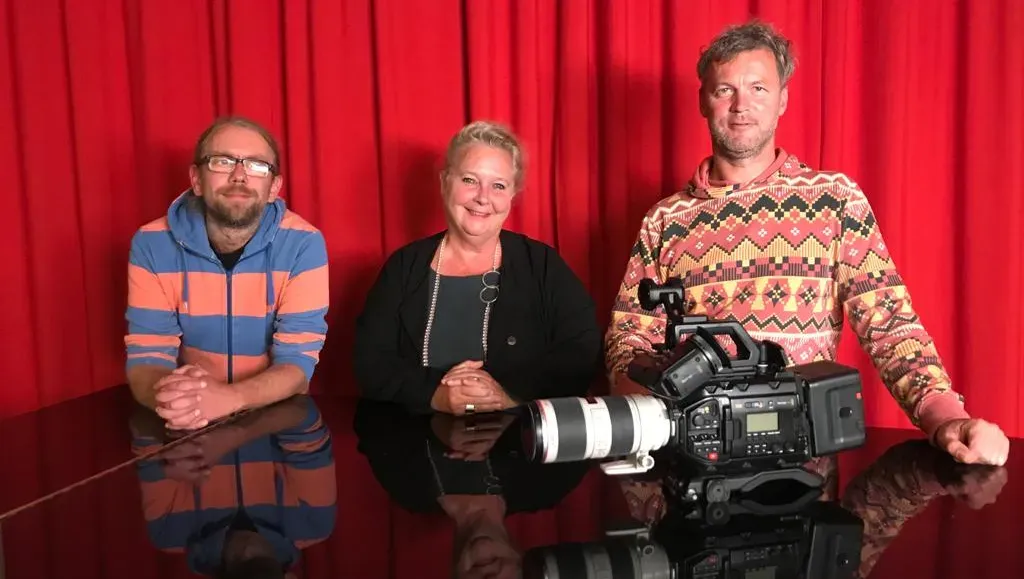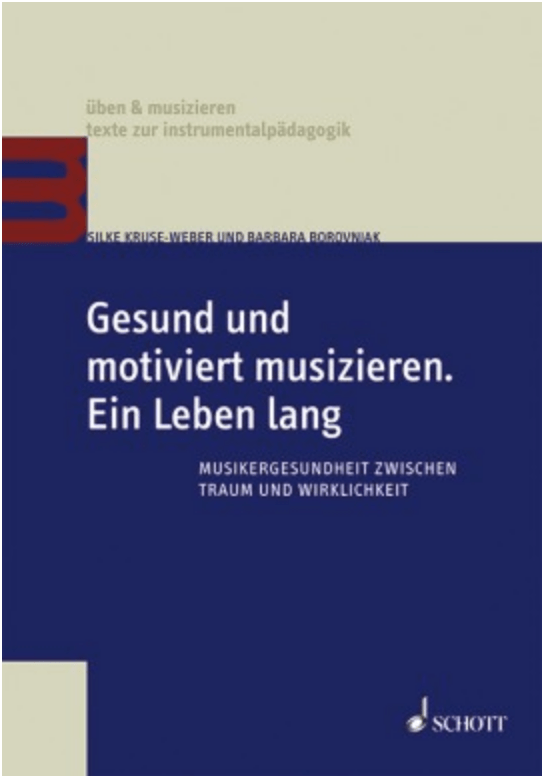Symposia & projects
"Chameleons" film project
You have to empathize with every given situation and adapt to it: creative, communicative and flexible - like a chameleon.
The documentary focuses on the diverse work of instrumental and singing teachers in the field of tension between education and being an artist, between elementary music teaching and musical excellence. How and where do the instrumental and vocal teachers actually work? What are the challenges you face? In addition, the film illuminates the many possible approaches to making music, offers a look behind the scenes of musical excellence, with a contribution to diversity, inclusion and identity in instrumental and vocal pedagogy.
“Chameleons”: a film about the power of music, about the value of educational work, and at the same time a plea for freedom in artistic expression that encourages you to explore your own musicality.
The film premiered on October 29th 2021 at the Art University Graz in the MUMUTH as part of the symposium "Challenge accepted 4.0"
If you wish to see the full movie, please contact me here.
Credits:
Director: Fritz Aigner
Camera: Stefan Schmid, Michael Gügerl, Reinhold Ogris
Editor: Andre Kratzer
Sound: Björk Pan, Daniel Sauer, Gerd Jochum
Sound mix: Gerd Jochum
Color correction: Markus Moser
Production: Stefan Schmid, AVbaby Mediastudios
Project coordination: Thaïs-Bernarda Bauer, Barbara Borovnjak, Pia Neururer, Sandra Macher
Idea: Silke Kruse-Weber
Concept: Fritz Aigner, Silke Kruse-Weber
Prizes and Festival presentations
2022
Best Foreign Documentary beim Northern Virginia International Film & Music Festival USA
Best Feature Documentary beim FilmArte Festival in Berlin
Nominee Best Picture beim renommierten International Sound & Film Music Festival in Samobor, Kroatien
Nominee Best Director in Documentary/Best Documentary World Music & Independent Film Festival, Washington DC
Official Selection The Santa Clarita International Film Festival, California
Official Selection LoudSoulMusic Festival, Serbia
Official Selection InterFaith Film & Music Festival, New York
Official Selection Logcinema 6th Music Film Festival, Buenos Aires
Official Selection Docs Without Borders Film Festival, Delaware USA
2023
Nominee Best Non-English Language Film California Music Video & Film Awards
Nominee Best Feature Film Ely Film, Art & Music Festival, Nevada
Official Selection Sound on Screen Music Film Festival, South Africa
Massachusetts Doc.Boston Documentary Film Festival, Somerville Theatre Boston, USA
California Capital International Documentary Film Festival, Sacramento, CA

Fritz Aigner, Silke Kruse- Weber, Stefan Schmid
24/11/2017
29-30/11/2014
21-22/06/2013
28- 29/06/2012
11- 12/11/2011
The future demands on us instrumental and vocal teachers are varied. In order to deal with the daily challenges, this day offers Challenge Accepted 4.0. Impulses and new perspectives to reflect your own job satisfaction, professionalism and teaching quality. The artistic documentary Chameleons about our professional group, which premieres on this day, is unique. While music-making itself is more in the foreground in the social perception, this unique film offers a look behind the scenes of making music and the diverse approaches to musical learning and teaching.
The question is to what extent we just want to adapt to the current challenges or, on the other hand, see opportunities to shape our own visions in the professional field of instrumental and vocal pedagogy. We can look forward to it, because a music school will speak out on this.
Since the beginning of t he 1980s, instrumental and vocal pedagogy (IGP) has developed as a separate course within music pedagogy. The growing number of chairs in the university sector, the further development of the curricula, increased scientific studies on instrumental and vocal pedagogy as well as a growing international scientific community in music education led to an increase in didactic and scientific publications and instrumental and vocal pedagogy was finally able to develop Establish it as an artistic, pedagogical and scientific subject. Furthermore, instrumental and vocal pedagogy has developed considerable dynamics through constant changes in the fields of practice in the last few decades. Above all, the cooperation with relevant neighboring disciplines such as music psychology, pedagogy, sociology and neuroscience and the interdisciplinarity that has grown from it have led to numerous paradigm shifts in the subject since the 1990s.
Knowledge transfer between Weiz Music School and University of Music and Performing Arts Graz
Due to its high relevance, the project participants of the IGP 2018 network decide to open up and continue the knowledge transfer project for the practice field of music schools. The follow-up project network IGP-Go is created. This follows the transfer of knowledge in the professional exchange between eight teachers from the University of Art Graz and 12 collaborative music school teachers from the Weiz music school (with director Josef Bratl). The IGP-Go network, including its scientific evaluation, will run until the end of 2021 in order to further develop and evaluate the findings for the relationship between theory and practice in instrumental and vocal lessons. In the mutual transfer of knowledge, the experience of the music teachers should increasingly flow into the training of instrumental and vocal teachers at the KUG, and the knowledge and attitudes of contemporary instrumental and vocal pedagogy should also increasingly be incorporated into the work of the music school staff.







